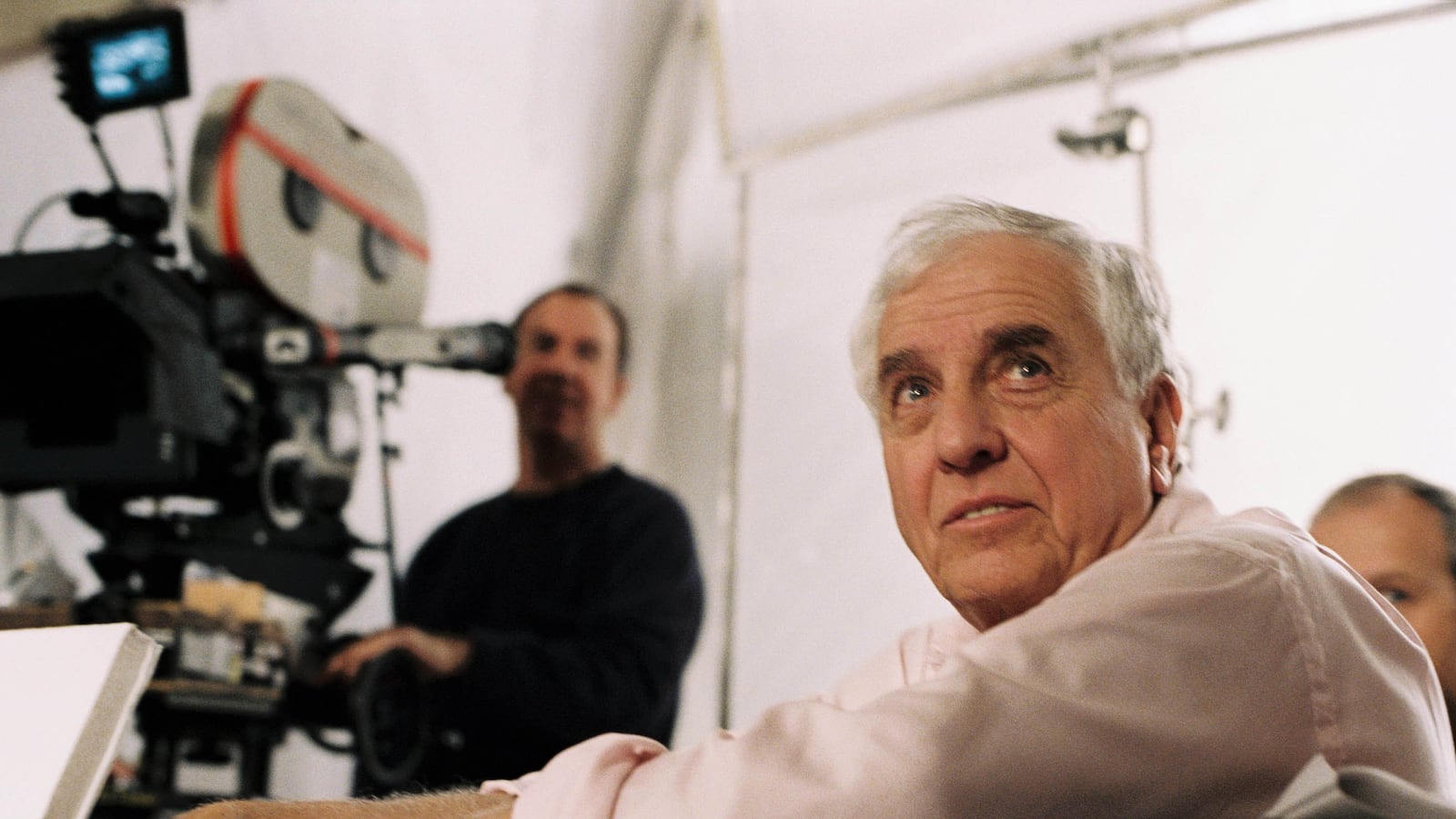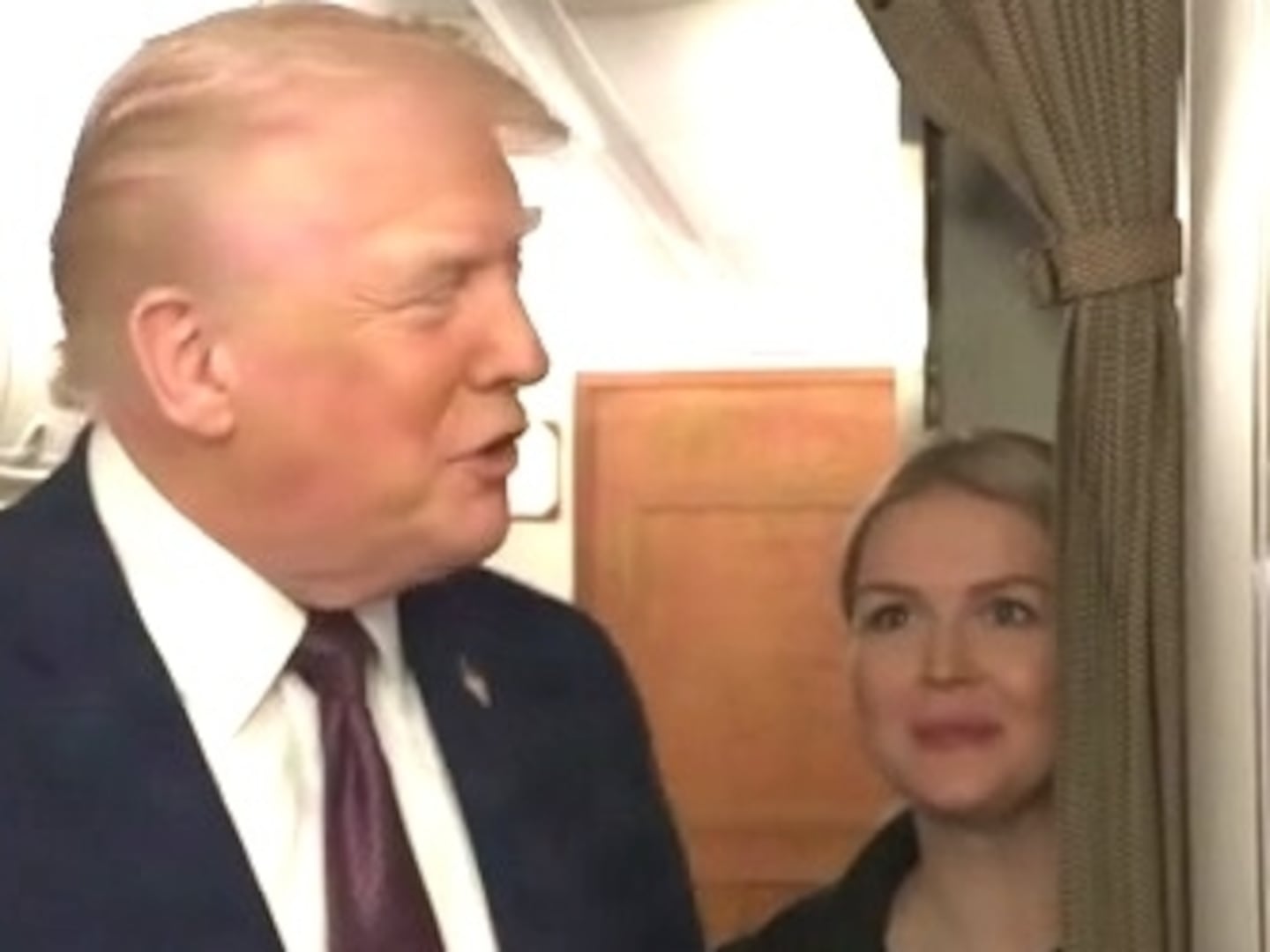To see a Garry Marshall television show or film—or to drink in that unmistakably Bronx accent, kvetching about this or that—always instilled in audiences a warm sense of familiarity, and with it, plenty of smiles and laughter. It’s no coincidence that Marshall created a sitcom called Happy Days; he was the living embodiment of gaiety, and a man whose insatiable zest for life was fueled by valuing family above all else.
“He’s like the ultimate father for everyone in every scenario,” said Julia Roberts in April. “I think about Garry and it’s like he raised me. I grew up on his television shows. My kids watch movies on the weekends—we don’t watch TV during the week. Now, when I was a kid, I got home from school and turned the TV on and it stayed on. Happy Days—that’s what my sisters and I were brought up on. That kind of idea of family and friends and things that make you laugh and make you wish you were a Cunningham.”
On Tuesday, Marshall passed away at 81 due to complications from pneumonia. He’d reportedly suffered a recent stroke that left him hospitalized.
“He loved telling stories, making people laugh, and playing softball, winning numerous championships. Even at age 81, he had a record this year of 6-1 pitching for his team,” his family said in a statement.

Indeed, Marshall was an avid sports fan—particularly basketball, where he could often be seen courtside cheering on the Los Angeles Lakers. Born in the Bronx, New York, to Marjorie, a German-English tap dance school instructor, and Anthony, an Italian-American director, he began his writing career with a sports column for The Daily Northwestern, the Northwestern University newspaper, before transitioning into a joke writer for Joey Bishop, and, after moving to Hollywood in 1961, as a writer for The Tonight Show.
It was in Hollywood that Marshall joined forces with fellow scribe Jerry Belson, and the two wrote episodes for TV programs The Dick Van Dyke Show, The Joey Bishop Show, The Lucy Show, and Neil Simon’s The Odd Couple. On writing, Marshall once remarked, “There’s no better satisfaction than writing. I feel that writing is the best and everything else comes with it.”
Marshall eventually went solo, creating the beloved sitcom Happy Days in 1974. The smash series, despite never being nominated for a writing Emmy, ran for 11 seasons and 255 episodes, and introduced the world to the character of The Fonz, the phrase “jumping the shark,” and the talents of Ron Howard, and inspired one of the greatest tribute music videos ever in Weezer’s “Buddy Holly,” helmed by Spike Jonze. The show also brought us Scott Baio, who starred in the Marshall-helmed spinoff series Joanie Loves Chachi, and delivered a prime-time speech at the Republican National Convention the day before his former employer’s passing.
On Tuesday night, The Fonz himself, Henry Winkler, tweeted out his condolences to Marshall, highlighting his “loyalty, friendship and generosity.”
And it’s that sense of “generosity” that everyone points to as a key Marshall attribute. He created the sitcom Laverne and Shirley, providing a platform for his sister Penny—who’d go on to direct the celebrated films Big, Awakenings, and A League of Their Own—and gave us Mork & Mindy, shepherding the career of a young Robin Williams, who played the show’s titular wacky alien.
In the early ’80s, Marshall branched out into film, fast establishing himself as one of the most sought-after comedy directors in the industry. There was 1984’s The Flamingo Kid, featuring a young Matt Dillon; 1987’s Overboard, starring the real-life pairing of Kurt Russell and Goldie Hawn, now a cable TV staple; and 1988’s Beaches, which remains a female empowerment cult classic. But it was Pretty Woman, released in 1990, that launched Marshall—and his stars Julia Roberts and Richard Gere—into the stratosphere. The hooker-with-a-heart-of-gold tale earned $463 million worldwide against a mere $14 million budget, as well as an Oscar nomination for Roberts, making her the top actress in Hollywood for the better part of a decade.
He’d reunite with Roberts for the blockbuster hit Runaway Bride in 1999, and also helm The Princess Diaries, springboarding the career of Anne Hathaway. In recent years, he was behind the ensemble dramedies Valentine’s Day, New Year’s Eve, and Mother’s Day. Though critically derided, the movies generated a combined $400 million at the box office.
Marshall served as a father figure not only to Roberts but to many of the young stars he introduced to the big-time, helping guide them through the rough waters of Hollywood.

“Some journalists are pestier than others, so I find out where the pests are,” Marshall told USA Today in April. “I am careful with my actors and actresses. I come back and tell them, ‘Watch out for this one’ or that one. People are surprised I do that. But I watch out for them even after the movie is over.”
The genial TV turned film giant also acted occasionally, first in a recurring role on The George Burns and Gracie Allen Show in the ’50s, before making his debut as an uncredited hoodlum in the classic 1964 Bond film Goldfinger. He’d later assume bit parts—usually as a variation of his larger-than-life self—in movies like A League of Their Own, Hocus Pocus, Never Been Kissed, and in a rollicking two-episode arc on the FX series Louie. He had a famously close relationship with the actor Hector Elizondo, whom he met in the 1980s; Elizondo subsequently appeared in every single one of Marshall’s films.
Marshall is survived by his wife, Barbara; son Scott, a film director, daughters Lori and Kathleen, both actresses; numerous grandchildren; and sister Penny and brother Ronny Hallin.
“Garry of course was one of those truly important people one is blessed to meet in one’s lifetime,” said Richard Gere in a statement released on Tuesday. “Besides being the pulse and life force of ‘Pretty Woman’…a steady helmsman on a ship that could have easily capsized…he was a super fine and decent man, husband and father who brought real joy and love and infectious good spirits to every thing and everyone he crossed paths with. Everyone loved Garry. He was a mentor and a cheerleader and one of the funniest men who ever lived. He had a heart of the purest gold and a soul full of mischief. He was Garry.”




